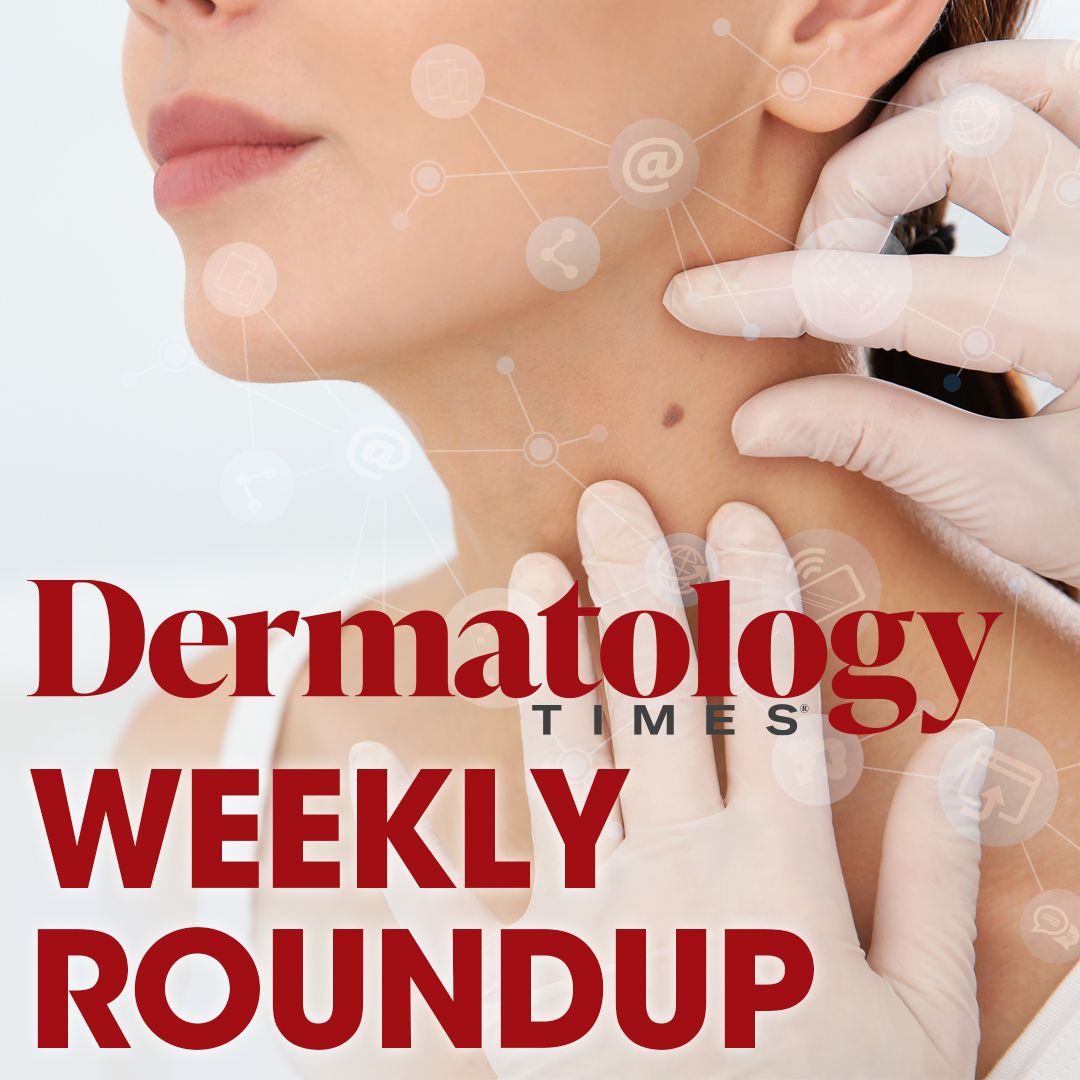- Case-Based Roundtable
- General Dermatology
- Eczema
- Chronic Hand Eczema
- Alopecia
- Aesthetics
- Vitiligo
- COVID-19
- Actinic Keratosis
- Precision Medicine and Biologics
- Rare Disease
- Wound Care
- Rosacea
- Psoriasis
- Psoriatic Arthritis
- Atopic Dermatitis
- Melasma
- NP and PA
- Skin Cancer
- Hidradenitis Suppurativa
- Drug Watch
- Pigmentary Disorders
- Acne
- Pediatric Dermatology
- Practice Management
- Prurigo Nodularis
- Buy-and-Bill
Article
Counterfeit drugs harder to spot than many physicians believe
For dermatologists, battling the growing problem of drug counterfeiting requires wariness and common sense, says a Food and Drug Administration expert who spoke at Cosmetic Boot Camp, held here.
Aspen, Colo. - For dermatologists, battling the growing problem of drug counterfeiting requires wariness and common sense, says a Food and Drug Administration expert who spoke at Cosmetic Boot Camp, held here.
“Medical practitioners are very key players in combating counterfeits and making sure that the supply chain is safe for patients, and for practitioners,” says Karen Rothschild, Esq., regulatory counsel with the FDA Center for Drug Evaluation and Research.
Over the past 18 months, the FDA has established the Office of Drug Security, Integrity and Recalls, which includes the Division of Supply Chain Integrity, where Ms. Rothschild works. As part of this effort, the agency sent informational letters to doctors and other medical practitioners who, according to FDA evidence, had purchased drugs from unlicensed suppliers - whether intentionally or unintentionally.
“We warned against the use of any drugs from unlicensed suppliers because they may be counterfeit,” and urged practices not to use any of these drugs - and to share information that would help the FDA prosecute the unauthorized sellers.
Increasing globalization
Such efforts are necessary, she says, because the supply chain has changed.
“With globalization and many more parties involved in the manufacture and distribution of drugs, we see more opportunity for malfeasance,” in forms including unapproved, counterfeit or otherwise dangerous products. Additional perils could come from adulterated drugs, stolen drugs, expired drugs and improperly stored or handled drugs.
“Counterfeiters are getting increasingly sophisticated and smart,” Ms. Rothschild says. “You can’t simply look at a pill or package and say, ‘That's counterfeit.’” Accordingly, she offers the following suggestions for avoiding unapproved drugs and their sellers:
- “If it looks too good to be true, it probably is.” Unauthorized distributors frequently send email and fax blasts touting incredible deals, she notes. If something looks questionable, Ms. Rothschild says, “Ask questions, request a pedigree from the distributor, or contact the manufacturer.”
- Only purchase FDA-approved drugs. Drugs approved in other countries but not by the FDA are illegal in the United States, she says. “Even with drugs from Canada, it’s difficult to know what one is getting. And anyone can put a Canadian maple leaf on their website and say ‘we’re Canadian.’ Most of them aren’t.”
- Inspect and double-check. “Look at the expiration dates and lot numbers, the name of the active ingredient and routes of administration. (See: Fraudulent versions of Botox found in the United States: http://www.fda.gov/Drugs/DrugSafety/ucm349503.htm.) And make sure the labeling is in English.”
- Monitor patient feedback. “If you’re getting new adverse events that a product has not previously been associated with,” she says, “consider that it could be a counterfeit product.”
- Know your trading partners. “All wholesale distributors in the United States must be licensed in each state to which they distribute.” State websites list this information, and the FDA has provided links to these websites at: http://www.fda.gov/Drugs/DrugSafety/DrugIntegrityandSupplyChainSecurity/ucm281446.htm. Verifying licensing info doesn't guarantee that a distributor is legitimate, Ms. Rothschild says. “But it’s one of the best ways we have right now to do that.”
- Eliminate the middleman, where appropriate. Though Allergan has a distributor network from whom physicians can order Botox (onabotulinumtoxinA), she says, the company drop-ships the product directly to physicians. Many practitioners don’t even realize there shouldn’t be a middleman in this part of the transaction.
- Report suspected counterfeiters. In this regard, Ms. Rothschild says, “We would love dermatologists’ help.” One of the easiest ways involves sending a message to drugsupplychainintegrity@fda.hhs.gov. For general questions for the Office of Drug Security, Integrity and Recalls, call 301-796-3130.
An eye on prices
Dermatologist Mary P. Lupo, M.D., adds that every time she receives a fax regarding unrealistic botulinum toxin pricing, “I give that to my local sales representative.” Additionally, she says, she has seen practitioners buy perhaps three vials of legitimate Botox annually, and import everything else. When people have an active account with the legitimate manufacturer, she says, there seems to be difficulty tracking how much legitimate product they’re actually using. “It’s very frustrating,” says Dr. Lupo, who is based in and is co-director of the Cosmetic Boot Camp.
Consumers’ desire for increasingly cheaper neuromodulator injections drives the counterfeiting, adds Kenneth Beer, M.D. In his market, he says, botulinum toxin prices have fallen from $12 per unit to $9.
“What happens at $5 a unit?” Dermatologists can explain to prospective patients that their costs to purchase the product remain the same, he says. Therefore, on a rational level, “People understand that it’s impossible. Nevertheless, they still purchase the product from less principled practitioners - even when they rationally know that they cannot be getting the actual product that is being advertised.” Dr. Beer is also a co-director of the Cosmetic Boot Camp and is a dermatologist in private practice in West Palm Beach, Fla.
Online dangers
Vic Narurkar, M.D., says the counterfeiting problem is not limited to FDA-regulated drugs. Regarding skincare products, he says, “There's a massive array of online distribution,” some of which comes from “diverters” who buy legitimately from manufacturers, then resell products to unauthorized distributors. Dr. Narurkar is a co-director of the Cosmetic Boot Camp and associate clinical professor of dermatology, University of California, Davis.
To address these problems, manufacturers are beefing up their tracking capabilities. For example, Dr. Beer says, one vendor implemented a tracking system that in 2012 allowed the company to identify and cut off five suspicious purchasers representing millions of dollars in business. Aesthetic-sector vendors also are considering adding increasingly sophisticated tracking tools such as radiofrequency identification (RFID) chips to their products, he says.
To combat unscrupulous deep discounters, Ms. Rothschild says, “Present yourselves as responsible players - not only that you’re properly trained and qualified, but also that you are getting FDA-approved products from the legitimate U.S. supply chain, which is among the safest in the world.”
Along with regulating and approving drugs and medical devices, she explains, the FDA also approves the packaging, labeling and manufacturing processes used to make drugs it approves. Conversely, “If people are getting foreign drugs or even foreign versions of U.S. drugs, we do not inspect those manufacturing sites. We do not know if they are manufactured according to our quality standards,” Ms. Rothschild says.
The FDA is committed to promoting and protecting the public health by helping to ensure that only safe, effective and high-quality medications are available to the American public, Ms. Rothschild says.
Disclosures: Dr. Lupo is a trainer and clinical investigator for Allergan, and a trainer for Medicis/Valeant, but has no ownership interests in these companies. Dr. Narurkar is a clinical investigator for Allergan, Solta and Zeltiq. Dr. Beer is an investigator and consultant for Allergan, Medicis/Valeant and Merz.
Subscribe to Dermatology Times to get monthly news and analysis for today's skincare specialists.





